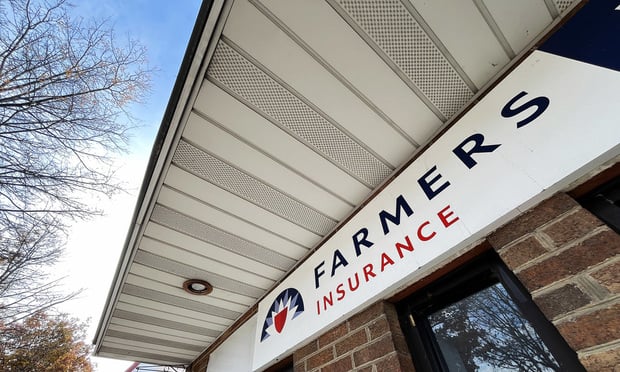According to a June 20 report in the Miami Herald, South Florida homeowners insured by Citizens Property Insurance Corp. will likely see annual premiums rise by more than 10% next year if the company’s recently requested rate increase is approved.
Citizens Property Insurance Corporation was created by the Florida Legislature in August 2002 as a not-for-profit, tax-exempt, government entity. Its role is to provide insurance protection to Florida policyholders who are entitled to but are unable to find property insurance coverage in the private market.
“The horizon looks really cloudy out there,” said Barry Gilway, president and CEO of Citizens, the second-largest holder of property insurance in Florida — behind Universal Property & Casualty — at a meeting of the insurer’s board of governors in the Orlando suburb of Maitland, Mary Ellen Klas of the Herald/Times Tallahassee Bureau reported.
Gilway explained that the soaring rates in Miami-Dade, Broward and Palm Beach counties are because of something regulators have been unable to track: excessive water damage claims buoyed by homeowners who assign their claims to a contractor doing the repairs, giving the contractor — and often the aggressive law firms they hire — the right to collect payments directly from the insurance company.
If approved by state regulators, the statewide residential rate increases will average 5.3%, but because each policy is based on the homeowner’s risk, no one pays exactly the average. The company is looking for an average rate increase of 10.5% for Miami-Dade, 10.4% for Broward, 9.3% for Palm Beach and 3.8% for Monroe.
|Rate decreases projected for the rest of Florida
Unlike South Florida, most counties are projected to see multi-peril rates go down. The Tampa Bay area will be less than the state average next year, Klas reported.
Pinellas County will see its Citizens rates for multi-peril homeowners lines drop by 5.7%. Hillsborough County residents will see a 0.8% increase, Pasco County a 2.7% drop, and Hernando County a 2.2% increase.
According to Michael Peltier, Citizens spokesperson, as reported by Klas, “Outside of South Florida, we don’t see the degree of assignment of benefits abuses that we see in South Florida, and that’s been reflected in the rates.” He said that the drop in reinsurance costs and more competitive pricing related to windstorm coverage has contributed to the rate declines in the other markets.
State law limits Citizens to a maximum rate increase of 10% a year per policyholder but that doesn’t include the portion of the rate included in the Hurricane Catastrophe Fund, so some rates will rise above the cap. The company predicts the cap will lead to a loss of about $124 million this year and $182 million in 2018 in its multi-peril homeowners lines, Gilway said. Profits from commercial lines of insurance will offset some of those losses in 2017, he said, but not in 2018.
Related: Weather losses in U.S. exceed $1 billion in January for insurers, Aon reports
|Private insurers also look for rate increases
Private insurance companies, which aren’t under the same restrictions, are seeking rate increases that are even higher than Citizens, Klas reported. Deerfield Beach-based People’s Trust, which insured 54,267 single-family homes in South Florida asked for a 14.5% average rate hike for multi-peril homeowner coverage in March. The Florida Office of Insurance Regulation rejected the company’s request and instead improved a higher one — an average of 16% — to cover its losses.
In addition to a rate increase, the Citizens board authorized the company to ask the Office of Insurance Regulation to also approve changes to the way the company handles claims, in an effort to persuade homeowners to avoid litigation and curb the costs. If the changes are not approved, Citizens said its losses and exposure will rise.
This is the second time in three years that Citizens is seeking a rate increase for South Florida. This year, rates rose 8.9% to 10% for policyholders who renewed in Palm Beach, Broward and Miami-Dade.
This story originally appeared in the Miami Herald, and was reported by Mary Ellen Klas. She can be reached at 850-222-3095, [email protected], @MaryEllenKlas.
Want to continue reading?
Become a Free PropertyCasualty360 Digital Reader
Your access to unlimited PropertyCasualty360 content isn’t changing.
Once you are an ALM digital member, you’ll receive:
- Breaking insurance news and analysis, on-site and via our newsletters and custom alerts
- Weekly Insurance Speak podcast featuring exclusive interviews with industry leaders
- Educational webcasts, white papers, and ebooks from industry thought leaders
- Critical converage of the employee benefits and financial advisory markets on our other ALM sites, BenefitsPRO and ThinkAdvisor
Already have an account? Sign In Now
© 2024 ALM Global, LLC, All Rights Reserved. Request academic re-use from www.copyright.com. All other uses, submit a request to [email protected]. For more information visit Asset & Logo Licensing.








